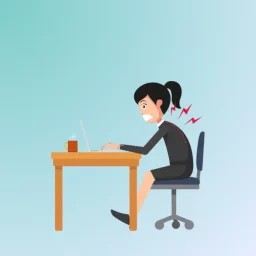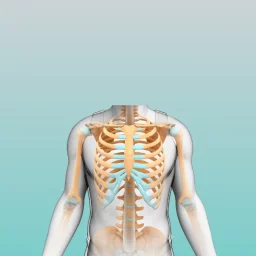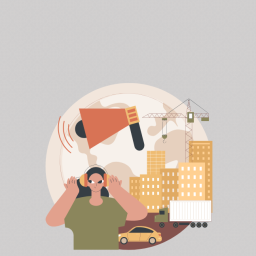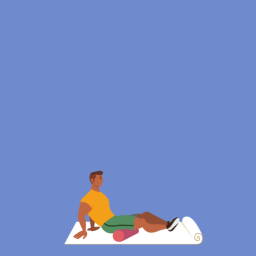Getting back to school after a fun summer can be challenging. However, back-to-school season is also an exciting time to build new habits and routines. After a well-deserved vacation, you’re likely feeling refreshed and motivated to start on a good foot. Here are our 7 tips to make the most of that energy and get back to your school routine that will set you up for success:
Preparing the week before.
The first step to putting your best foot forward is planning ahead. You have a lot of work to do, so make sure you don’t overbook yourself.
Plan your week in advance. Make sure that you know what classes are going on and how many hours each day you’ll need to be there, as well as any other commitments (like meetings, clubs, sports teams, work, etc.). Plan how and when you need to get to campus each day
Pick out clothes and your meals for each day of the week. You’ll feel more prepared for what’s coming if you’re already prepared with a plan.
Fuel your body for success.
Meal planning can be a big time and money saver for busy students. Pick a day each weekend and prepare several meals ahead. You can avoid feeling hungry or fatigued by always having wholesome food and healthy snacks available at home and on the go. This is important so you don’t find yourself wandering around campus when you’re hungry – that’s when you’re most likely to make unhealthy decisions. Read our blog post on how to pack a healthy and delicious lunch for some helpful tips!
Drink plenty of water and keep your caffeine intake low throughout the day to stay hydrated.
Establish a good sleep regimen.
Establishing a good sleep regimen is essential to a healthy return to school. Ideally, plan to go to bed and wake up at the same time every day, so that your body can get used to this new routine. Consistency is important, so try not to vary your sleep schedule by more than 1 hour throughout the week. Try eating dinner around the same time each night, and avoid electronics, caffeine and alcohol before bedtime. Aim for 7-9 hours of regenerative sleep every night. Avoid taking naps that are longer than 30 minutes so you don’t disrupt your routine. Remember, you cannot “bank” your sleep hours by sleeping in on weekends.
Planning for movement
If you’re feeling like your school routine is getting too sedentary, it might be worth considering adding more movement to your day. Movement is an important part of life and can help keep your brain healthy and happy. Find an activity you enjoy and schedule it. Make it a non-negotiable part of your routine. Look for ways to sneak in exercise, like a quick walk-in between lectures. Cardiovascular activity stimulates endorphin release, also known as the “feel-good hormone”, which helps to manage stress.
The American College of Sports Medicine recommends that adults get at least 30 minutes a day of moderate-intensity aerobic activity (like brisk walking) or 15 minutes a day of vigorous-intensity aerobic activity (like running) for good health.
If this is something new to you, start with small steps: try taking just a few extra minutes in the morning before heading off to school; maybe get up from bed earlier than usual so that you have time for some stretches before class starts. You may find yourself enjoying these added moments as well!
If moving isn’t something that appeals to you right now—maybe because there’s no time during the day when it would work into your schedule—it doesn’t mean there won’t be other ways around this problem: try making use of such things as stairs instead of elevators so they become part of daily life; walk outside whenever possible; get off a few stops early if you use public transport.
Set up a good study space
When it comes to setting up a study space, there are a few things you should consider. First, choose a quiet location. You’ll want to avoid distractions as much as possible when studying and writing papers or doing work on the computer—you don’t want any outside noises distracting from what you’re trying to do. Next, make sure everything works ergonomically!
Don’t let technology distract you
Turn off notifications for social media, apps, and other services you use. If a notification pops up on your phone (or any other device), it can be hard to focus and get things done when you’re constantly distracted by what’s happening online.
Set a time limit for using your phone. Set up an alarm or timer so that when the time is up, it reminds you to get back to work. Use a timer app. These tools are great for helping students set realistic goals for themselves in terms of how much time they spend using technology each day—and then enforcing those rules by making sure they don’t exceed them!
Prioritize Your Health
As you start the process of getting back in touch with your school routine, it’s important to remember that healthy living isn’t just about how much exercise or sleep you get. It’s also about eating well and treating yourself well. Your body is the only place you have to live in.
Our team of healthcare professionals at CURAVITA is always happy to help you make a personalized plan to help you achieve your health and wellness goals. Don’t wait until you’re in pain to come see us! From backpack tips to posture advice and ergonomic tips, we’ve got your back! We have 2 locations close to the University of Ottawa and Carleton for your convenience. For more information or to book an appointment with one of our healthcare professionals, visit our clinic websites at Curavita Byward and Curavita Glebe.
Byward Market
Email: info.byward@curavita.com
Glebe
Email: info.glebe@curavita.com
















